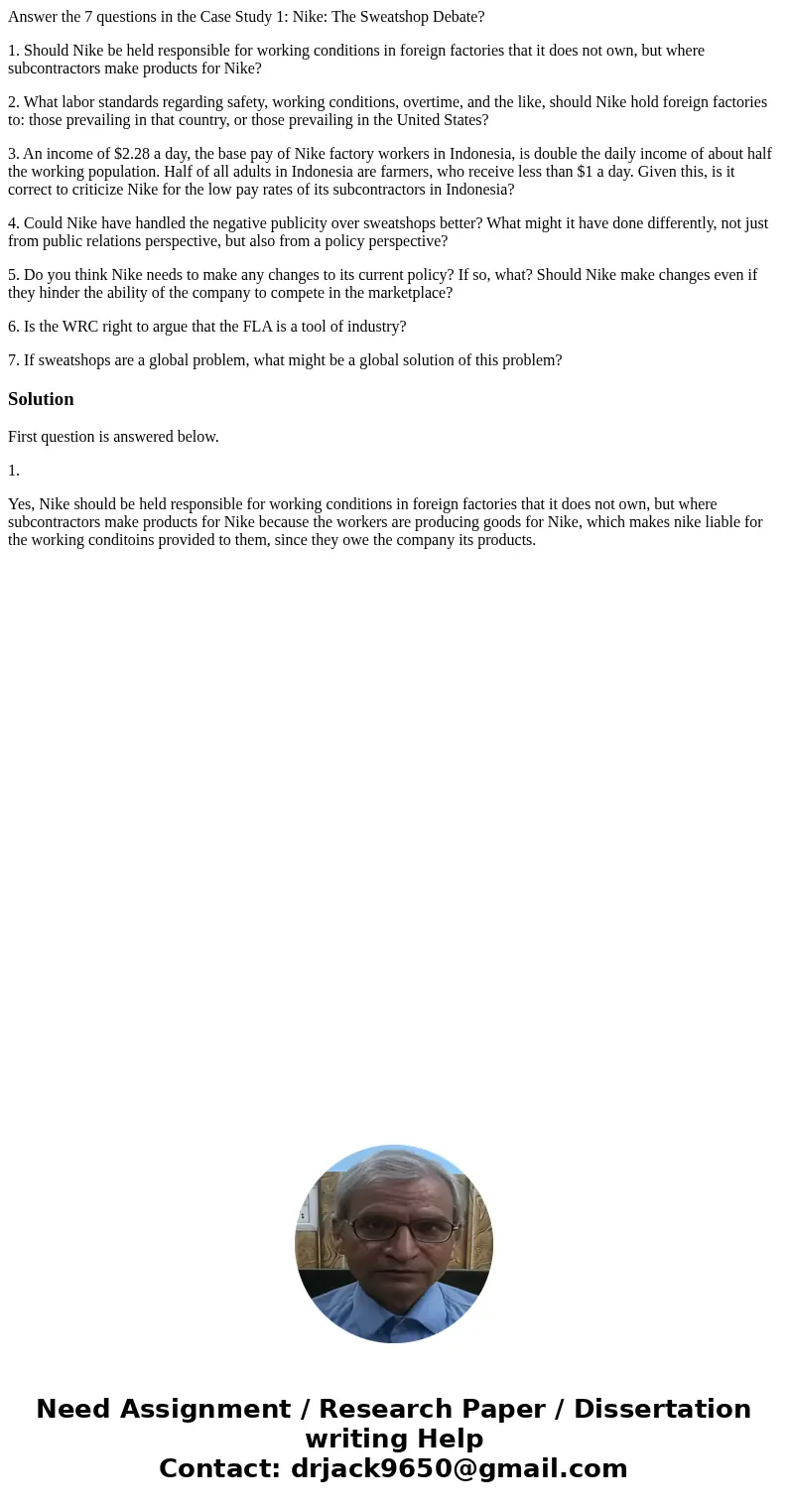Answer the 7 questions in the Case Study 1 Nike The Sweatsho
Answer the 7 questions in the Case Study 1: Nike: The Sweatshop Debate?
1. Should Nike be held responsible for working conditions in foreign factories that it does not own, but where subcontractors make products for Nike?
2. What labor standards regarding safety, working conditions, overtime, and the like, should Nike hold foreign factories to: those prevailing in that country, or those prevailing in the United States?
3. An income of $2.28 a day, the base pay of Nike factory workers in Indonesia, is double the daily income of about half the working population. Half of all adults in Indonesia are farmers, who receive less than $1 a day. Given this, is it correct to criticize Nike for the low pay rates of its subcontractors in Indonesia?
4. Could Nike have handled the negative publicity over sweatshops better? What might it have done differently, not just from public relations perspective, but also from a policy perspective?
5. Do you think Nike needs to make any changes to its current policy? If so, what? Should Nike make changes even if they hinder the ability of the company to compete in the marketplace?
6. Is the WRC right to argue that the FLA is a tool of industry?
7. If sweatshops are a global problem, what might be a global solution of this problem?
Solution
First question is answered below.
1.
Yes, Nike should be held responsible for working conditions in foreign factories that it does not own, but where subcontractors make products for Nike because the workers are producing goods for Nike, which makes nike liable for the working conditoins provided to them, since they owe the company its products.

 Homework Sourse
Homework Sourse